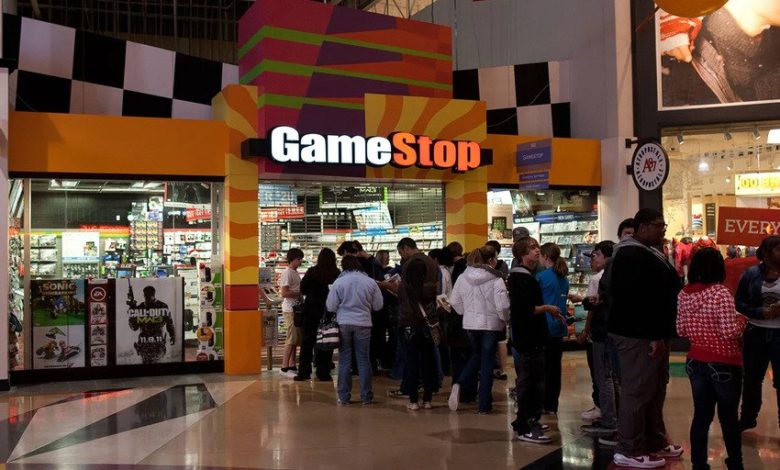GameStop’s Downward Spiral: Is The Meme Stock Fantasy Finally Over?

GameStop (NYSE:GME), the poster child of the 2021 meme stock mania, is once again making headlines—but this time for all the wrong reasons. In a surprising and highly controversial strategic pivot, the company recently disclosed a planned private offering of $1.75 billion in 0% convertible senior notes, due 2032, with proceeds rumored to support a massive bet on Bitcoin. This development, which follows GameStop’s announcement that it had already bought 4,170 Bitcoins worth nearly $450 million, has caused its stock to nosedive by over 22%. The move, which mimics MicroStrategy’s crypto-centric business model, comes amid growing doubts over the company’s core retail viability in a world where video game sales are increasingly digital and cloud-based. While GameStop’s leadership touts modernization efforts, cost-cutting, and AI-powered employee engagement tools as signs of resilience, the desperate and potentially shareholder-dilutive actions raise more questions than they answer. Let us take a closer look and identify the biggest signs that indicate that the retailer is scrambling to stay afloat!
Strategic Pivot: Betting on Bitcoin Over Business Fundamentals
GameStop’s move into Bitcoin investment is perhaps the most glaring sign of its identity crisis. In March, the company disclosed that it had purchased 4,170 Bitcoins, and at current prices, the crypto holdings are worth nearly $450 million. While the company insists the move aligns with its Investment Policy, the decision essentially shifts focus away from operational recovery and into speculative asset management. This crypto pivot resembles the approach taken by MicroStrategy, which famously rebranded itself as a Bitcoin proxy rather than a software firm. For GameStop, this shift comes with high risk and little strategic alignment with its core business of retail gaming. Cryptocurrency markets are notoriously volatile and prone to regulatory uncertainty, and GameStop’s exposure adds another layer of financial risk that traditional retailers typically avoid. Moreover, the company has not clarified how Bitcoin ownership enhances customer experience, supports supply chain efficiency, or drives topline growth. In fact, diverting capital into a volatile, non-operating asset class seems more like a gamble than a structured investment strategy. The lack of clarity on how Bitcoin fits into GameStop’s long-term roadmap raises red flags for investors looking for stable, recurring revenue and operational growth. Instead of doubling down on e-commerce, logistics, or game publishing, GameStop is venturing into uncharted territory that has already triggered a strong sell-off in its shares. Institutional investors, who had once begun to reconsider GameStop as a turnaround story, now find themselves questioning the logic behind its crypto detour.
Convertible Debt: A Lifeline That Threatens Shareholder Value
As if the Bitcoin strategy wasn’t speculative enough, GameStop has proposed issuing $1.75 billion in 0% convertible senior notes due 2032. The notes are being offered privately to qualified institutional buyers under Rule 144A and carry no regular interest payments—effectively functioning as long-term zero-coupon debt. However, the catch is that these notes are convertible into shares, meaning that if and when conversion occurs, it will significantly dilute existing shareholder equity. To make matters worse, GameStop has given the underwriters a 13-day window to purchase up to an additional $250 million in notes, potentially pushing the total offering to $2 billion. This comes at a time when GameStop’s market cap is hovering just under $13 billion, meaning the dilution risk is not trivial. With this structure, the company is essentially using future equity to fund today’s bets, including Bitcoin accumulation and potential acquisitions under its broad and vague definition of "general corporate purposes." In a better market or a different sector, such a move might be considered a bold growth initiative, but for a legacy retailer struggling with a rapidly shrinking physical footprint and an increasingly digital gaming industry, it reeks of financial desperation. Shareholders who rallied behind the stock’s social media-driven price surge may find themselves holding a smaller piece of a more unstable company, especially if the stock price weakens further and conversion becomes more attractive to noteholders. The issuance of this debt, with no clear plan on return-generating investments, only amplifies skepticism about the management’s grasp on strategic capital allocation.
Tech Overhaul With YOOBIC: A Last-Ditch Attempt To Modernize
Faced with outdated in-store technology and fractured communication across its 3,000-store network, GameStop turned to YOOBIC in 2023 to unify task management, employee training, and communications. This deployment was part of a broader effort to improve operational efficiency and employee experience—factors that are indeed critical in a high-turnover retail environment. Over a four-month rollout, the YOOBIC platform was installed across GameStop’s global footprint, reaching 22,000 users, with features mimicking social media apps for internal communication, task delegation, training compliance, and even internal contests. While the tool has shown some promise in centralizing workflows and improving store-level coordination, the rollout feels more like a Band-Aid than a strategic overhaul. GameStop’s core challenge isn’t just disjointed internal communication—it’s the existential threat of declining in-store sales as gaming goes digital. Adding YOOBIC does little to change this trajectory. Furthermore, the emphasis on gamified communication and AI-powered analytics appears superficial without a meaningful plan to drive new revenue streams or revamp customer-facing technology. Critics argue that the YOOBIC initiative was heavily promoted to investors to demonstrate progress, yet the underlying metrics—same-store sales growth, footfall, and e-commerce penetration—remain absent or unimpressive. While improving employee workflows is necessary, it is not sufficient to save a business model in structural decline. YOOBIC may enhance internal operations, but it does not solve GameStop’s fundamental problem: relevance in a post-disc, post-retail world.
Employee Engagement & Culture Fixes Amid Existential Risk
In an era of rising labor costs and retail burnout, GameStop has tried to paint itself as a forward-thinking employer that is investing in the employee experience. Much of this narrative has been built around the YOOBIC platform, which the company says provides a “social media-like” experience for store associates, including gamified leaderboards, peer-to-peer support, and real-time training feedback. The leadership has emphasized how this culture reboot helps associates feel valued and connected to HQ, with the end goal being improved customer service and store execution. However, this focus on internal morale—while commendable—is coming at a time when the company's core strategy appears rudderless. Investors and analysts have been given little confidence in how GameStop plans to grow beyond stopgap operational improvements. The emphasis on employee satisfaction appears to be an effort to stem attrition and distract from deeper strategic shortcomings. Meanwhile, the company is still exiting or downsizing operations in parts of Europe, trimming headcount, and operating without forward-looking financial guidance. GameStop ended the year with $682.9 million in inventory, significantly down from the $915 million the previous year, and highlighted a $313 million net loss for FY2022. These metrics point to a company that is still shrinking, regardless of how engaged its employees might feel. It is not clear how employee satisfaction alone will drive topline growth or revive GameStop’s position in a gaming ecosystem dominated by cloud, subscription, and digital delivery. The disconnect between HR-focused storytelling and actual business turnaround remains uncomfortably wide.
Conclusion: The Meme Dream Is Fading
Source: Yahoo Finance
GameStop’s latest maneuvers—plowing cash into Bitcoin, issuing potentially dilutive convertible debt, hyping internal productivity software, and revamping employee morale—have not had much of a positive impact on its stock price as its stock plummeted after the announcement of the convertibles offering. We believe that all its recent moves paint a picture of a company grasping at straws. Once heralded as the ultimate underdog win against Wall Street short sellers, GameStop now looks more like a case study in strategic confusion. While YOOBIC’s rollout and a slight uptick in operational efficiency are welcome, they don’t address the company’s declining relevance in a digital-first gaming world. The Bitcoin investment feels more like a distraction than a diversification, and the convertible debt structure risks eroding shareholder value. For all the hype surrounding figures like Roaring Kitty, the hard numbers and decisions being made by management suggest a company that’s still very much in distress. Investors would be wise to weigh the optimism of turnaround stories against the mounting evidence of structural decline before making any long-term bets on GameStop.




